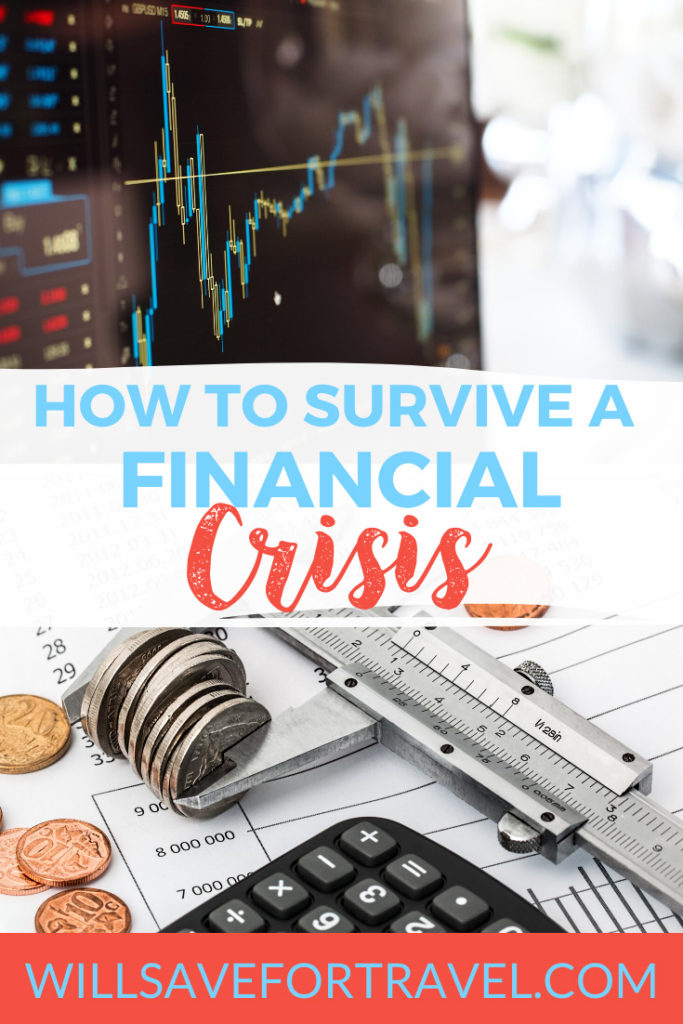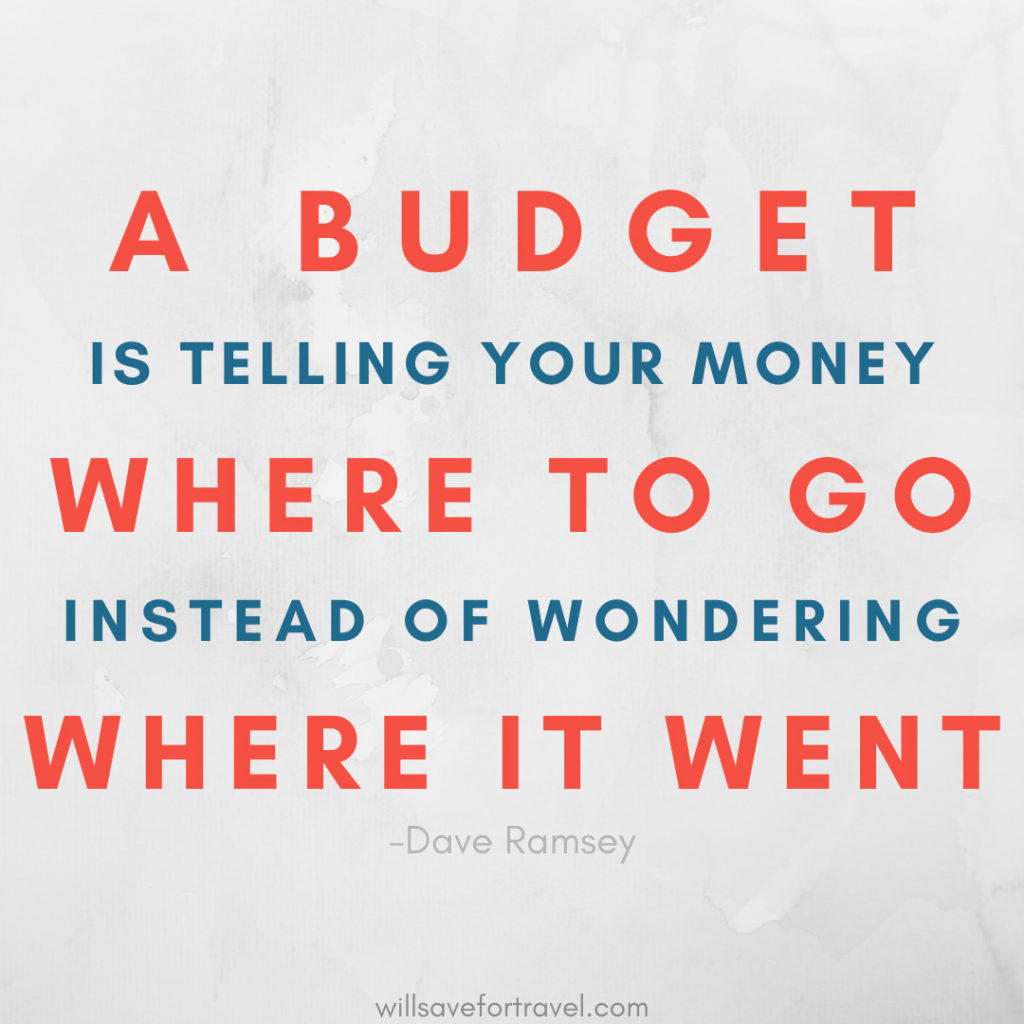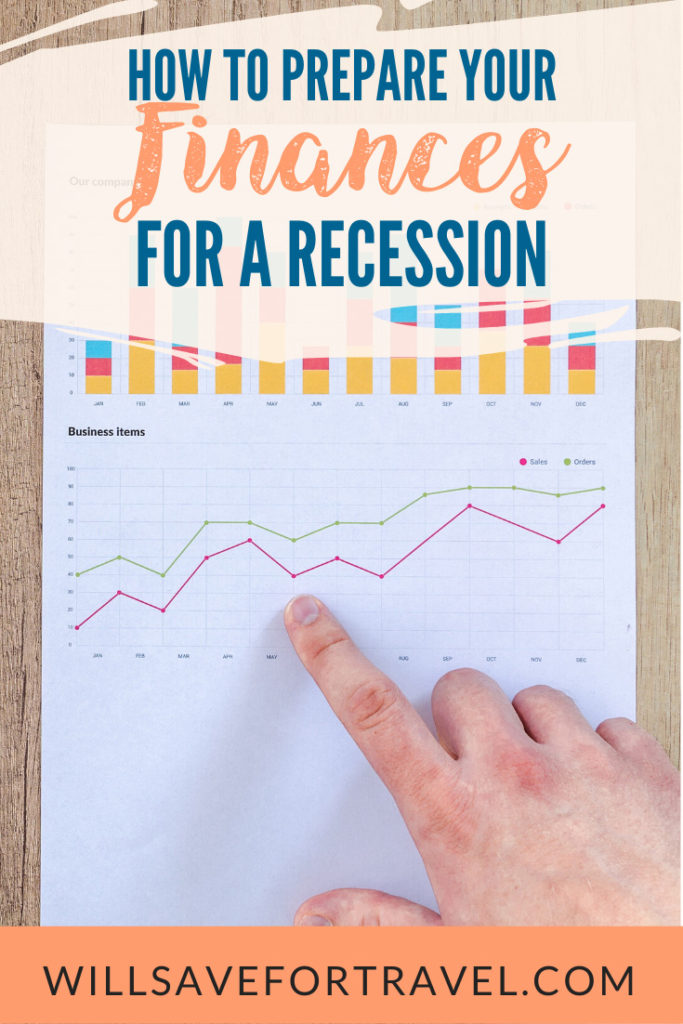How To Prepare For A Financial Emergency
Budgeting Finance Paying Off Debt Saving || Tags: budgeting, Debt, Money ||We’ve all had a financial emergency! Here’s what to do if you’re faced with a large bill, a job loss, or are worried about a recession.
Unfortunately a financial emergency can happen to all of us, at any time. We see it all the time, people lose their job, get sick, get in an accident, or sometimes there’s an apocalypse and suddenly we can’t leave our homes. Ideally you prepare before these things happen but that’s not always the case! I’m going to walk you through what to do if you have a financial emergency and how to prepare for the next one.


Unexpected Financial Events
You know how one day everything is totally fine and then you’re hit by a truck? It happens! No one really expects these things to happen (that’s what they’re called unexpected…) but everyday people incur large expenses or income loss. Some examples:
- Car accident – need to replace or repair the car unexpectedly
- Medical emergency – hospital bills and loss of income
- Natural disaster – damage to your home & belongings
- Job loss – loss of income
- Divorce – loss of one income / lawyer fees
- Worldwide pandemic – loss of work
See how often some of these things happen to people we know? This is how Walter White turned to making drugs… which made for great TV, but not so good if it’s your real life.
What To Do During A Financial Emergency
There are really two types of financial emergencies: one time (large) expenses like a bill, and loss of income. Here’s what to do in each scenario.
One Time Expense
If it’s a one time financial emergency like a car repair/replacement or a medical bill here are the steps to take:
Figure Out How Much You Owe – Add up all the bills associated with the unexpected expense
Look At Your Current Finances – How much do you have in savings that could go toward this bill?
What Can You Do To Make Up The Difference – Can you work some overtime? Sell something that is sitting around?
Work It Into Your Budget – If you know you need $500 by next month, then you’ll have to work on how to save $250 each paycheck (if you’re paid biweekly) Read how to biweekly budget!
If The Difference Is Substantial – If you won’t be able to make up the difference quickly, you’ll need to look into payment plan options, or in extreme cases; borrowing.
Loss Of Income
If you’ve lost your income, or your income is reduced, here’s what to do:
Start With Your Budget
If you’ve already been budgeting then you’ll have a leg up, but if you haven’t you’ll want to start with figuring out how much your income will be in your new situation. Read about how to make a zero based budget.
Prioritize The “4 Walls” – When starting to make your budget, make sure to prioritize the “4 Walls” first – Food, Utilities, Housing and Transportation. These are the things you absolutely need to make sure you have food on the table and a roof over your head.
Pause Sinking Funds – If you’ve been saving for Christmas, travel, etc. in a sinking fund then consider pausing to make your ends meet. Read more about sinking funds
Stop Extra Debt Payments – You may need to stop your debt snowball or debt avalanche right now in order to make ends meet. Still pay your minimum payments, or if you can’t, try the next step.
Negotiate With Lenders – Some lenders will be able to help you if you tell them your situation. You can usually defer mortgage payments (which adds them on to the end of your term), and you may be eligible for interest only payments on things like student loans.
Research Government Programs – You may be eligible for employment insurance (EI) which will pay you while you look for work. If you are off work due to a disability or sickness, there are programs for that as well. You can access local food banks to help you put food on the table. Please don’t be scared to get help if you truly need it, these programs are in place for a reason!
Be Wary Of Loans And Credit Cards – For the love of all that is holy please do not go to a payday loan place. You will owe them forever, please please please do not go there. Also try to avoid using your credit card to make up the difference in income. You will have to pay it back eventually.

How To Prepare For A Recession
What exactly is a recession anyway? Basically a recession is a decline in economic activity across the market for 2 or more quarters. It happens when the total value of the goods and services produced (called the Gross Domestic Product, or GDP) is in decline. Usually this comes with an increase in unemployment, a decrease in the housing market and a decrease in the stock market.
A recession may be coming, but they are impossible to predict! If it does it may have an impact on your finances, especially if you lose your job due to cutbacks. It doesn’t have to be the end of the world, here’s what you can do to prepare yourself for a recession.
Pay Off Debt
One of the best things you can do to prepare for a recession is pay off your debt. If you can’t get it paid off, get it down as low as possible. Not having a debt payment while suffering a job loss will make life so much easier!
Build An Emergency Fund
If you don’t have an emergency fund, now is the time to think about building one. Never invest your emergency fund. If your emergency fund is invested 1) it’s hard to get to because you’ll have to wait a few days to withdraw, and 2) when the markets go down, so will your money. Keep your emergency fund in a high interest savings account where you can transfer the money to your main bank account quickly online. How much you’ll need is personal, and depends on your budget, but if you’re trying to save quickly, save as much as possible!
Remember your sinking funds that you may have paused? They can become emergency money too!
Read More About Emergency Funds
Live Within Your Means
Living within your means is how you’ll get through any financial tough times. As long as you do not spend more than you earn, you’ll be in a great place when the markets turn around. You may have to cut out things like travel, eating out and other non-necessities for a while in order to make ends meet.
Read More About Living Within Your Means
Consider Upgrading Your Education
Now may be the time to upgrade your education or change fields. Consider fields that are in demand at the time.
Focus On The Big Picture
It can be scary to see the markets take a nosedive, but now is not the time to cash in your investments. Especially if you’re young and 10+ years away from retirement, think of it as “stocks are on sale”! You’ll be able to buy more shares which should be worth more in the future. Keep investing!
Final Thoughts
Financial emergencies and recessions can feel scary and impossible to recover from, but the reality is they happen to all of us and things can and do turn around eventually.
If you plan in advance, you’ll be better able to respond when the next financial emergency hits. If you’re experiencing this right now, just know you are not alone!



Leave a Reply
You must be logged in to post a comment.